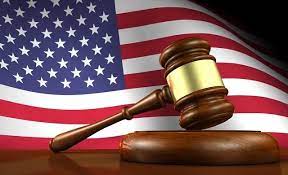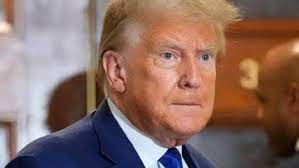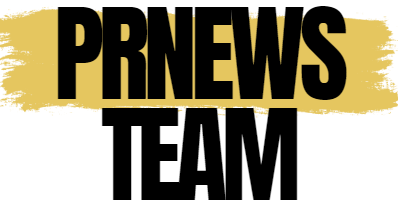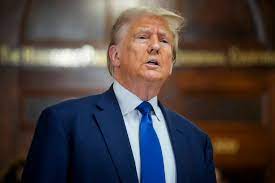In a seismic legal blow to former President Donald Trump, a New York judge has ruled that he committed fraud by systematically misrepresenting his wealth to banks and insurers.
The ruling comes as part of a civil case brought against Trump and his family business, asserting that they manipulated property values by more than $2 billion to suit their business interests.
It’s a major setback for Trump, one that could hinder his ability to conduct business in the state and has serious implications for his legal battles and political ambitions.
New York Attorney General Letitia James accused Trump, his two adult sons, and the Trump Organization of inflating property values to secure better loan terms, insurance deals, and tax benefits. She contended that they fabricated financial records and statements to achieve these ends.

The blistering decision, delivered by Judge Arthur Engoron in a New York state court, arrived after James requested a summary ruling to expedite the trial. In the ruling, Judge Engoron found that Trump:
- Overvalued Mar-a-Lago by a staggering 2,300% in one financial statement.
- Exaggerated the size of his penthouse at Trump Tower in New York by claiming it was three times its actual dimensions.
- Dubbed the calculation of the penthouse’s area “subjective” and considered the misrepresentation fraudulent, stating that “a discrepancy of this order of magnitude, by a real estate developer sizing up his own living space of decades, can only be considered fraud.”
This ruling settles the central fraud claim made in the lawsuit, which means the upcoming trial will focus on six narrower claims and determine potential penalties.
The trial is scheduled to commence on October 2 and could extend into December, with James seeking $250 million in penalties and a ban on Trump conducting business in his home state.
Judge Engoron’s ruling was unequivocal, asserting that the documents presented contained fraudulent valuations used in business.
He described this as “a fantasy world, not the real world.” Moreover, he ordered the revocation of business certificates allowing some of Trump’s businesses, including the Trump Organization, to operate in New York.
This could have far-reaching consequences for Trump’s control over signature New York properties such as Trump Tower and the Trump Building at 40 Wall Street.
The judge did not grant Trump’s request to dismiss the case and imposed $7,500 fines on five Trump attorneys for making arguments that had already been rejected by the court.

Trump’s lawyers characterized this ruling as a “miscarriage of justice” and indicated their intention to appeal.
The former president vehemently denied any wrongdoing, denouncing the case as another political “witch hunt” driven by a biased prosecutor.
He accused the judge of being “highly politicized.” Trump is actively seeking to postpone the New York trial and has sued the judge.
An appeals court is expected to rule on this lawsuit shortly, potentially forcing Trump to face the rest of the case in court.
This is just one of several legal battles facing Trump as he campaigns for a potential rematch with President Joe Biden and a return to the White House.
He is also confronting 91 felony charges across four criminal cases, maintaining his plea of not guilty in each.
These legal challenges cast a long shadow over his political ambitions and business empire, making the coming months critical for his future.

